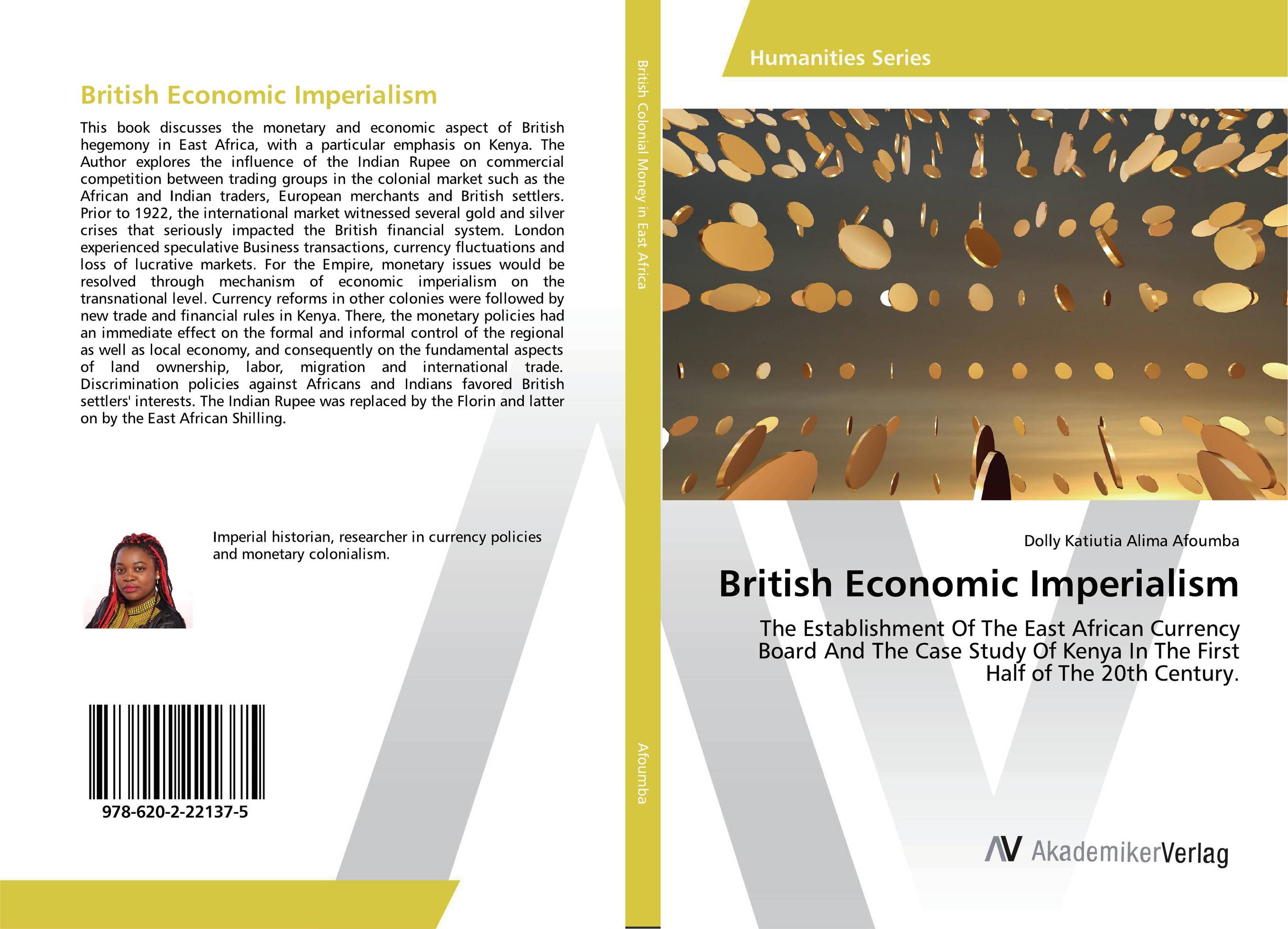| Поиск по каталогу |
|
(строгое соответствие)
|
- Профессиональная
- Научно-популярная
- Художественная
- Публицистика
- Детская
- Искусство
- Хобби, семья, дом
- Спорт
- Путеводители
- Блокноты, тетради, открытки
British Economic Imperialism. The Establishment Of The East African Currency Board And The Case Study Of Kenya In The First Half of The 20th Century.

В наличии
| Местонахождение: Алматы | Состояние экземпляра: новый |

Бумажная
версия
версия
Автор: Dolly Katiutia Alima Afoumba
ISBN: 9786202221375
Год издания: 2019
Формат книги: 60×90/16 (145×215 мм)
Количество страниц: 148
Издательство: AV Akademikerverlag
Цена: 26819 тг
Положить в корзину
| Способы доставки в город Алматы * комплектация (срок до отгрузки) не более 2 рабочих дней |
| Самовывоз из города Алматы (пункты самовывоза партнёра CDEK) |
| Курьерская доставка CDEK из города Москва |
| Доставка Почтой России из города Москва |
Аннотация: This book discusses the monetary and economic aspect of British hegemony in East Africa, with a particular emphasis on Kenya. The Author explores the influence of the Indian Rupee on commercial competition between trading groups in the colonial market such as the African and Indian traders, European merchants and British settlers. Prior to 1922, the international market witnessed several gold and silver crises that seriously impacted the British financial system. London experienced speculative Business transactions, currency fluctuations and loss of lucrative markets. For the Empire, monetary issues would be resolved through mechanism of economic imperialism on the transnational level. Currency reforms in other colonies were followed by new trade and financial rules in Kenya. There, the monetary policies had an immediate effect on the formal and informal control of the regional as well as local economy, and consequently on the fundamental aspects of land ownership, labor, migration and international trade. Discrimination policies against Africans and Indians favored British settlers' interests. The Indian Rupee was replaced by the Florin and latter on by the East African Shilling.
Ключевые слова: Money, British Empire, Colonial market, currency board, Rupie, India, trade competition, East Africa



